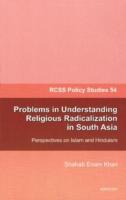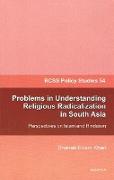Problems in Understanding Religious Radicalization in South Asia
BücherAngebote / Angebote:
This book identifies that the term 'radicalisation' has often been used pejoratively when talking about security. The contemporary radicalisation discourse unfurls against tensions and negotiations between the nations in terms of counter-terrorism and national security needs. A major dilemma at the heart of this discourse is the fundamental gap between radicalisation as a cause of 'terrorism' and the actual acts signified by the term 'radicalisation'. This study shows that radicalisation does not appear to be a necessary condition for terrorism. A discussion on South Asian Islam and Hinduism reveals a complex set of relations among the religious and the politics of identity. Hence, being a Muslim or a Hindu is just one attribute in the complex menu of identities available to most South Asians. The comparative analysis on the issue of radicalisation has proved to be particularly revealing and instructive. Problems and failures of three predominant statist models of radicalisation, introduced by the governments of the US, the UK and the EU, have been analysed to understand the embedded dilemmas in the West. In reality, these models indicate that radicalisation is neither a predictable nor a mechanical process. Finally, this study also shows that it would be far too simplistic to say that radicalisation is caused by the absence of democracy. Published in association with Regional Centre for Strategic Studies, Colombo.
Folgt in ca. 15 Arbeitstagen





